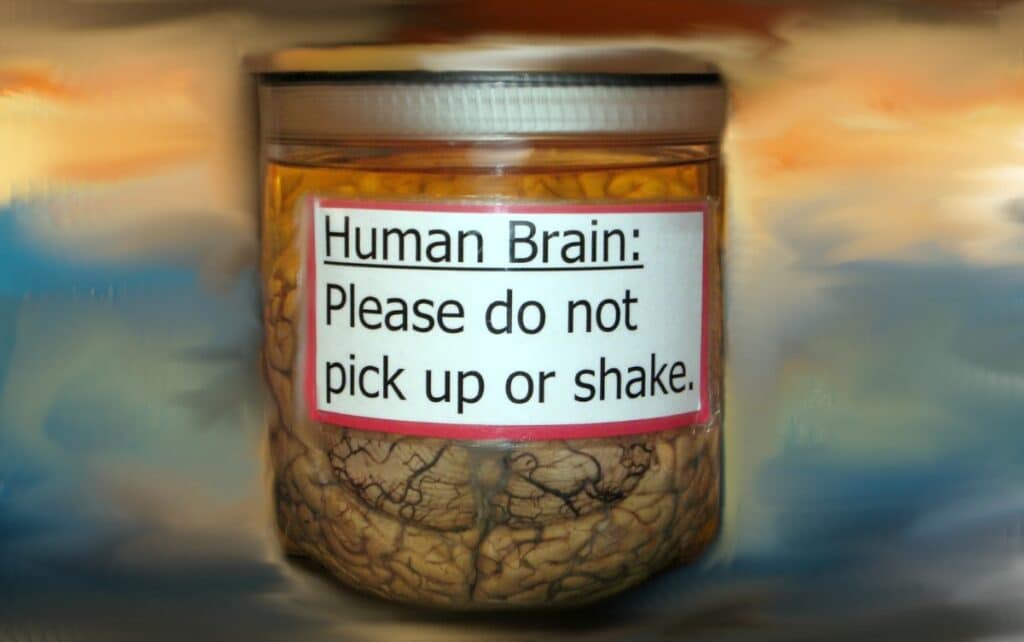Stinking Thinking

A good place to begin with this slippery topic is the definition offered by Solace Asia, an addiction treatment facility that emphasizes personal transformation through Cognitive Behavioral Therapy (CBT), interpersonal group therapy, and community living. Here is their definition:
“Stinking Thinking” is a phrase commonly utilized in 12-step programs to describe detrimental thought patterns that exacerbate addiction. These thoughts impair your perception of reality and hinder your capacity to acknowledge your actions responsibly.
We are talking about cognitive distortion, a notable and annoying side effect of both addiction and recovery. It covers negative thoughts and beliefs, and so much more. It is notoriously sneaky.
For instance, a seemingly positive thought can actually be odiferous. A person might think, “This drying out is going a lot better than I expected.” Definitely a positive thought, right? Except, the unhealthy brain will insist on taking that concept just a bit further, and add, “In fact, maybe I’m not an alcoholic after all. Maybe I’ll just have a couple of beers and see what happens.” Stink alert!
This problem shows up in many different forms, one of which is overgeneralization, which can be identified by signature phrases, like “This always happens to me” or, conversely, “This never happens for me.” An example might be asking someone for a date and being turned down. “Rejected again, as always!” a person might think. And then, from somewhere, comes the inspiration: “I deserve a drink.”
Minimization is another mental trap. At a holiday gathering, for instance, a concerned family member might suggest, “Maybe you’ve had enough…” In response, the distorted and smelly rationalization goes something like this: “So what? She’s only my sister, the Anxiety Queen. Any opinion from a habitual worry-wart doesn’t count.”
Another attractive escape route is emotional reasoning. “Sis does not understand how depressed I am, from being rejected again. Of course I need a drink.” All-or-nothing reasoning has a similar effect. “I’ll be rejected, over and over, forever. So I might as well just go ahead and be a drunk.”
For the aspiring sober person with some experience of therapy, meetings, or support groups, a certain brand of stinking thinking can be a big temptation, namely: to become an amateur psychiatrist, and go around diagnosing everybody. Or be a psychic — and either one involves mind-reading: “Sis is still emotionally raw from her divorce. Of course she hates the idea of other people getting together. Her concern isn’t about me. She’s only feeling sorry for herself, and jealous, and it shows!”
This excuse might be followed by fortune-telling: “Give her a couple more weeks, she will perk up and get off my back. Meanwhile, I won’t drink in front of her.” Labeling can also provide justification. “I’m a simple guy who enjoys life, and Sis is a shrew who can’t stand to see somebody else have a good time.”
Personalization is making everything all about you. “Besides, my friends enjoy my company, and they’ll miss me if I don’t show up at the bar on Friday night.”
The trick to overcoming these games we play with ourselves is to become familiar enough with them to identify them immediately, and nip them in the bud. As the article suggests, “Being mindful allows us to formulate alternative behaviors as a means to combat these cognitive distortions.” This is where a familiarity with CBT comes into the picture. “We need to be more curious as to why it is happening and how we can change those thoughts so that our feelings and behavior change towards the positive rather than the negative.”
For those who wish to improve in this area, the article offers both positive and negative reinforcement; the carrot and the stick. First, to become aware of negative self-talk is important, especially when it combines with stinking thinking. What also matters is compassion for the struggling self:
We can accept the fact that cognitive distortions are a universal phenomenon and that it is a natural part of the recovering self. Having acceptance in these areas and kindness in turn for these difficult emotions will ease recovery far more than if one is ignorant about these things.
Now on the punitive side, there is the possibility of relapse. To surrender to the negative voices in your head, or even listen to them, is pretty much the same as what purveyors of illegal substances call “getting high on your own supply.” It is not good for business, and to colleagues it signals untrustworthiness. The authors say,
Continuous negative dialogue is not healthy for recovery. If not intervened, it will accumulate to a point that relapse becomes the only option out of the pain. Hence, learning to deal with these cognitive disturbances is essential to maintaining one’s sobriety and preventing relapse from recurring.
Written by Pat Hartman. First published February 21, 2025.
Source:
“Stinking Thinking in Recovery,” SolaceAsia.org, March 19, 2024.
Image Copyright: Steve and Sharon Lawson’s Photostream/Attribution 2.0 Generic




